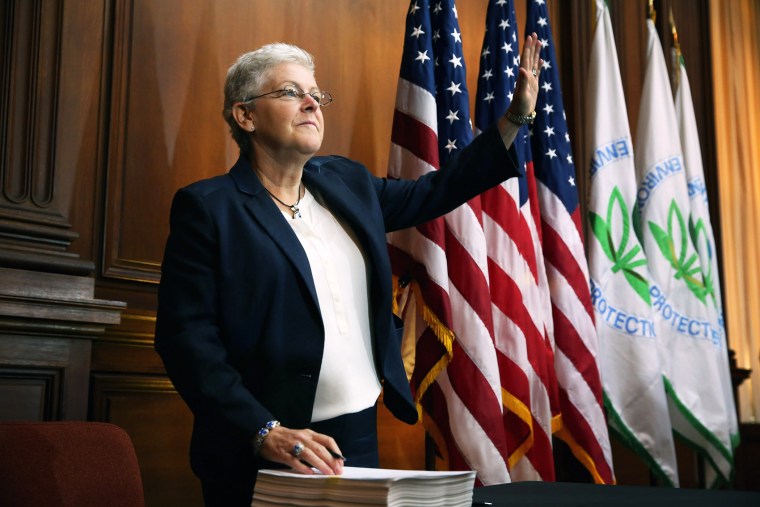In the last Congress, the House Republican majority made no secret of its hostility towards the Environmental Protection Agency, pushing measures like the absurd, "Secret Science Reform Act." As the new Congress stumbles out of the gate, the same measures have been deemed a priority in the lower chamber once again.
But of particular interest this week is the Republican effort to "improve" the EPA's Science Advisory Board. Pending legislation would, among other things, prevent EPA experts in a given field from participating in "advisory activities." It's a bizarre approach -- if a state was doing an investigation into smog, for example, EPA experts who've conducted research on smog would be legally barred from offering guidance.
This bill, by the way, passed the House in 2014, before getting ignored by the Senate, which was led by Democrats at the time.
This year, the bill's back, with an additional provision: members of the EPA's Science Advisory Board would now be prohibited, by law, from even considering research on climate science from a variety of sources, including the U.S. Global Change Research Program's National Climate Assessment. Dave Roberts' responded:
So. When considering what to do about carbon pollution, EPA may not consider what America's best scientists have concluded about it, what an international panel of scientists has concluded about it, how the federal government has officially recommended calculating its value, or the most comprehensive solutions for it. [...] As I've said many, many times, most Americans have no idea how bats**t crazy the House GOP has gone.... It's amusing in its own dark way, but it's not a sitcom or a satire. It's real life.
Wait, it gets a little worse.
The House will probably pass this proposal, at which point it'll go to the Senate, where it will be taken up by Senate Environment Committee Chairman James Inhofe (R-Okla.) -- the guy who believes snowballs in the winter disprove climate science.
The odds of President Obama signing a bill like this into law are non-existent, but it's clear that this is now a prominent part of the House Republican agenda, which means we can expect to see GOP lawmakers continue to push the idea so long as they're in the majority.
